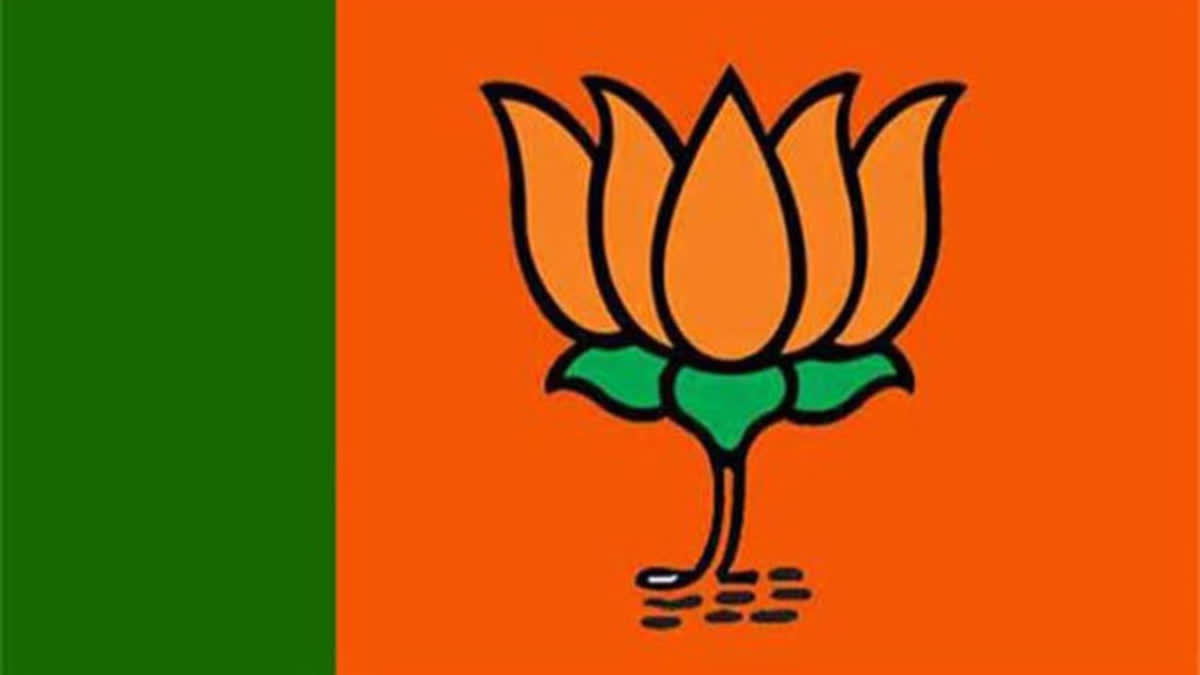Ranchi: The Bharatiya Janata Party (BJP) has come out with a new strategy to win all the 14 Lok Sabha seats in Jharkhand. This time, the party has focused on caste equations. Kalicharan Singh, who comes from Bhumihar caste, is fielded from Chatra, ignoring two forward castes. Apart from this, the party has made many changes to cater to the vote bank of Kudmi, Bania and Yadav castes which are dominant in Jharkhand.
To understand this formula, first of all know that out of 14 Lok Sabha seats, 5 seats are reserved for ST and one seat is reserved for SC. Out of the remaining 8 unreserved seats, BJP has left Giridih seat for ally AJSU this time too.
In the remaining seven seats, BJP has tried to address the caste equations. Of these, two seats have been given to Kudmi, two to Bania, one to Yadav, one to Bhumihar and one seat to Brahmin. Not only this, the party has canceled the tickets of its MPs from five seats (Hazaribagh, Dhanbad, Chatra, Dumka and Lohardaga).
Hazaribagh MLA Manish Jaiswal has been declared as the candidate for Hazaribagh, Baghmara MLA Dhullu Mahato for Dhanbad, Sita Soren, elder daughter-in-law of Shibu Soren, who was JMM MLA from Jama, has been made the candidate for Dumka and former Rajya Sabha MP Sameer Oraon for Lohardaga.
In this list, Kalicharan Singh, belonging to Bhumihar, is the surprise choice who is a local leader to be declared as the BJP candidate in Chatra. He has also been the vice president of state BJP. He has been a teacher by profession. Different parties have been fielding outside candidates in this seat. With this decision, BJP has tried to send the message that it also gives preference to the locals.
BJP, which contested seven out of eight unreserved seats in the 2019 LS elections, fielded Jayant Sinha of Kayastha community in Hazaribagh and PN Singh of Rajput community in Dhanbad. In that election it gave tickets to Sunil Kumar Singh of Rajput community in Chatra, Annapurna Devi of Yadav community in Koderma, Vidyut Varan Mahato of Kudmi community in Jamshedpur, Nishikant Dubey of Brahmin community in Godda and Sanjay Seth of Bania community in Ranchi, all of them won.
In 2019, candidates from the upper caste had won four of the seven unreserved Lok Sabha seats under BJP quota (Hazaribagh, Dhanbad, Chatra and Godda). In this context, BJP had given about 53 percent participation to the upper castes. If we include Giridih seat of AJSU (All Jharkhand Students Union), half the participation in NDA was given to the upper castes in that election.
But this time, out of total eight seats of NDA, only two seats have gone to the upper caste. About 25 percent participation has been given to forward castes and 75 percent participation has been given to backward castes.
ST population in Jharkhand is about 26 percent, SC population is about 12 percent. But the population of other castes is calculated only on the basis of estimates. However, organizations doing OBC politics claim that their population in Jharkhand is more than 50 percent. According to estimates, among the backward castes, the maximum population belongs to Kudmi community which is up to 16 percent, Yadavs are 14 percent and Bania, Sahu and Teli community is 22 percent.
The estimated population of the general category is 16 percent in which the population of Brahmins is considered to be 5 percent. Rajputs, Bhumihars and Kayastha castes are prominent in the remaining 11 percent. Political experts say that this time BJP is moving ahead keeping every equation in mind. Till now BJP has been accused of being inclined towards upper castes, which it has proved wrong this time. Deepak Prakash is representing Kayastha community from Jharkhand BJP unit as Rajya Sabha MP while Rajputs are left without any representation.
Read More
- Bansuri Swaraj Predicts BJP Wave In Delhi, Says Party Will Win All 7 Seats; No AAP- Cong Impact
- PM Modi Chairs BJP Poll Body To Finalise First List Of Lok Sabha Candidates
